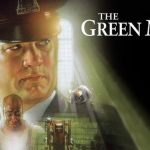Equilibrium (2002)
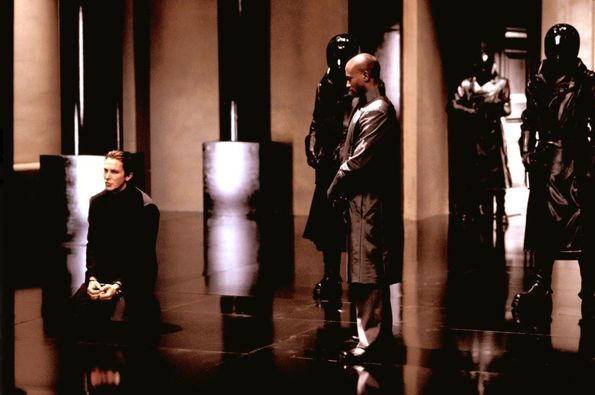
“Equilibrium” (2002): A Dystopian Action Thriller Directed by Kurt Wimmer
Released in 2002, “Equilibrium” is a thought-provoking dystopian action thriller directed by Kurt Wimmer, who also penned the screenplay. Set in a bleak future where emotions are suppressed by a totalitarian regime, the film stars Christian Bale as John Preston, a high-ranking government enforcer tasked with eliminating those who resist the oppressive laws of society. Blending action, philosophy, and a critique of authoritarianism, “Equilibrium” stands out as a unique entry in the sci-fi genre, garnering a devoted following for its innovative concepts and striking visuals.
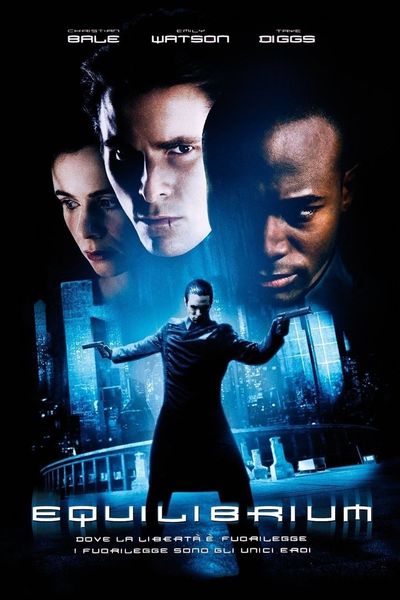
The narrative unfolds in a future society where the government has mandated the use of a drug called “Prozium” to suppress human emotions. In this world, any display of feelings—whether love, anger, or sadness—is deemed illegal, and the consequences are dire. John Preston, a member of the “Grammaton Clerics,” is responsible for enforcing these laws, hunting down those who refuse to comply. However, when Preston misses a dose of Prozium and begins to experience emotions, he finds himself questioning the very foundations of the society he has served. As he embarks on a journey of self-discovery, Preston becomes embroiled in a rebellion against the regime, leading to intense action sequences and moral dilemmas.

Kurt Wimmer’s direction is notable for its stylish visual aesthetic and choreographed action sequences. The film features a unique blend of martial arts and gunplay, creating an engaging and dynamic combat style that sets it apart from other action films of the time. The cinematography, handled by Dion Beebe, captures the stark contrasts of the film’s dystopian world, utilizing muted colors to reflect the oppressive atmosphere. Wimmer’s pacing maintains a balance between action and introspection, allowing audiences to engage with Preston’s internal struggle as he navigates a world devoid of genuine human connection.
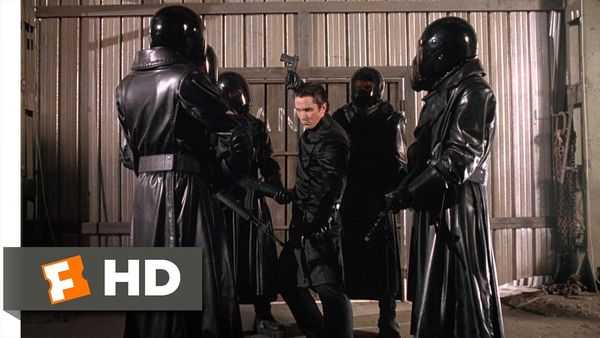
“Equilibrium” is primarily classified as a dystopian science fiction film, but it also incorporates elements of action and philosophical inquiry. The film explores themes of individuality, freedom, and the importance of emotions in defining humanity. By portraying a society stripped of its emotional core, “Equilibrium” prompts viewers to consider the consequences of conformity and the value of personal feelings. The narrative raises questions about the nature of happiness and whether a life devoid of emotion can truly be fulfilling.
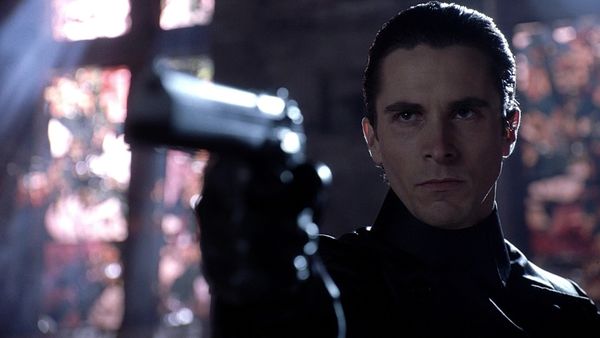
Christian Bale delivers a powerful performance as John Preston, effectively conveying the character’s transformation from a cold, obedient enforcer to a passionate individual seeking freedom. Bale’s intense portrayal captures the nuances of Preston’s internal conflict, making his journey all the more compelling. The supporting cast, including Taye Diggs as the antagonist and Emily Watson as Preston’s love interest, adds depth to the narrative, each character embodying different facets of a society grappling with the consequences of emotional suppression.
Upon its release, “Equilibrium” received mixed reviews from critics, who praised its ambitious premise and action sequences but noted its sometimes heavy-handed dialogue. Despite this, the film found a dedicated audience, particularly among fans of science fiction and action genres. Its exploration of philosophical themes and the moral implications of a controlled society resonated with viewers seeking substance alongside entertainment.
In conclusion, “Equilibrium” is a thought-provoking and visually stunning film that showcases Kurt Wimmer’s directorial vision and Christian Bale’s exceptional performance. With its engaging narrative, exploration of complex themes, and innovative action sequences, the film offers a captivating experience for fans of dystopian cinema. As it challenges viewers to reflect on the nature of emotion and individuality in a controlled society, “Equilibrium” remains a significant work in the landscape of science fiction, inviting audiences to consider the true essence of what it means to be human. Its enduring appeal continues to inspire discussions about freedom, conformity, and the power of emotions.





